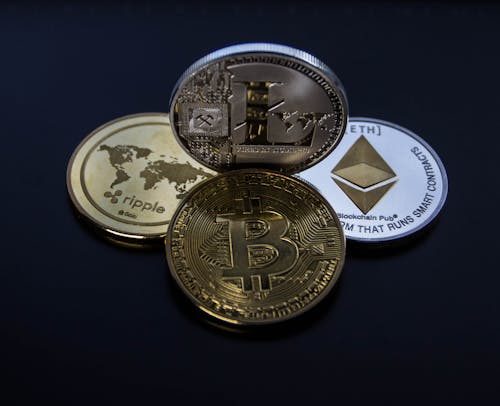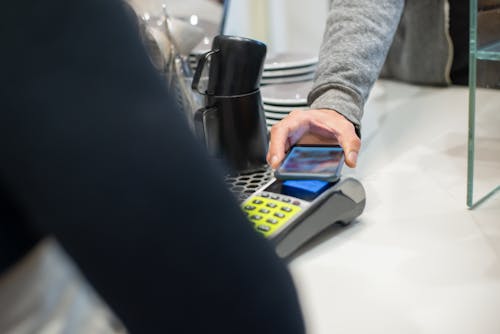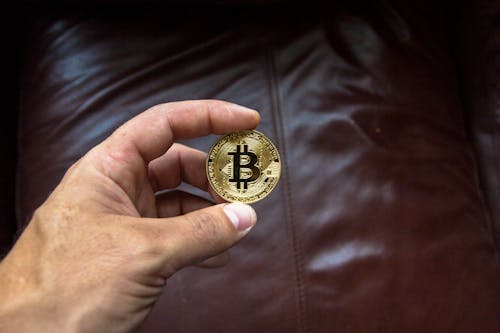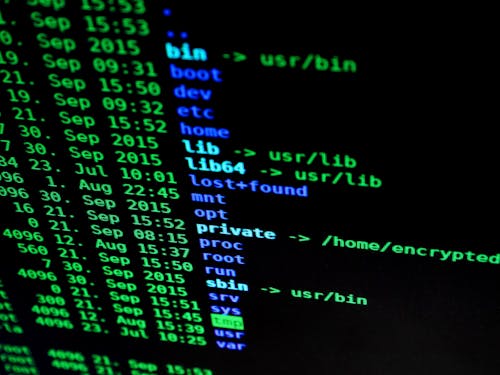Unconventional to an Accepted Alternative

Cryptocurrencies are the first alternative to the traditional banking system.
El Salvador has been the very first country to adopt a non-fiat, Bitcoin, as a legal tender last Sep. 21, 2021. Although several financial analysts, the World Bank, and the International Monetary fund see this move as risky considering Bitcoin’s market value is very volatile, this is a step closer to having cryptos as more of a universal means for payment rather than just another digital craze.
Revamp Laws and Regulations

Current monetary legislations and safety nets are all about government-issued currencies. But with the increasing relevance of cryptocurrencies, many nations set their eyes on how to make crypto usage more regulated to ensure both consumers and investors, specifically the retail population, will be protected. This will then have a ripple effect on the existing constitution for taxation, the value of the current legal tenders, trading, and even bylaws to prevent frauds and worst-case scenario - financial instability.
New Pasture for Insurance

Property, life, long-term disability insurance, these are some of the basic types of insurance that you will see in the market. Even your money in the banks is covered at a certain amount in case the bank defaults. Crypto insurance is still limited at the moment, but as more consumers venture to cryptocurrencies, it will not be a surprise if the “Cryptocurrency Insurance” industry will boom in the near future too.
E-Waste and Environment

Though not all cryptocurrencies are being mined digitally, it's not a secret that blockchains require excessive amounts of energy, most commonly from fossil fuels or coal burning. Bitcoin alone is producing 11.5 kilotons of e-waste and using 91 to 121 Terawatt-hours of power yearly. To give you a context, that’s around 0.5% of electricity consumption globally and all these numbers are expected to increase each year. The last bitcoin is expected to be mined around February 2140, so not unless this is addressed and a more sustainable means of mining coins are made available, then the impact to our environment will definitely be disruptive, in a negative manner, for future generations.
All About Investments

When you think about investments, what’s the common thing that comes to mind first? Probably real estate, stocks, or bonds if you are a little bit financially literate. Either way, all these are genuinely good investments in the old school style which will require physical documentation or contracts, where you can expect a return of investments in definitely not less than a year. All these by the book investments have been challenged with the introduction of cryptocurrencies in the financial markets.
Digital Art Transformation

Digital arts have been long existing since the 1960s, but digitally created artwork valuation has been given a new meaning in light of cryptos. The way digital arts are sold and bought with the usage of digital coins will further attract artists and collectors alike to venture into cryptocurrency. The eye-catching value of Non-Fungible Tokens doesn’t just entice prospective makers of art but also entice art investors to dip their hand in this digital art transformation.
Fast, easy, and cheap

Crypto investing, unlike real estate investing, does not require the usual long written physical documentation which takes weeks to be finalized, nor huge amounts of funds to start the investment. Investing in Crypto only takes a few minutes of your time and with a very minimal amount to start with. This provides a platform for not only high profile investors but anyone willing to take a risk. With the vast traffic of news about how crypto can let you earn money all too easily, we can expect even the younger generation to be more financially aware of investing.
As long as you can be online

Common investing requires you to visit a physical office or branch, but with Crypto investing - all you need is a verified online account with any trading platform and you can start depositing funds and investing online. We can foresee a future where investing, not just for crypto but other commodities, can be made anywhere, anytime, as long as you can be online.
Make it or break it

Cryptos have redefined investing in a manner that makes experts who spent years studying the complexity of investing shake their heads in disbelief. Meme stocks such as Shiba Inu and Dogecoin have made commoners or retail traders, with little to no knowledge about stocks, millionaires in just a matter of few months online. On the other end of the string, it also made some lose their life savings in just a few days. These incidents show how Crypto can have a great influence on the future of Financial Markets trading which is usually participated by experts. Crypto is expected to extensively challenge the current norm and baffle experienced traders and analysts on how digital investing can eventually either give everyone a chance to make or break their life.
Disruptive as a Possible Cause of Financial Recession

Given the cryptocurrencies has no intrinsic value and that its market prices are very volatile, since their value is highly dependent on the surge of people buying or selling it on online trading platforms, financial experts and regulatory bodies have pointed out a possible market crash a few years from now, similar to what happened in 2008. As the saying goes, “history repeats itself”. The steep increase of digital currencies shows a mirror of the incident that caused the 2008 financial crisis, which cost the jobs of over 30 million individuals.
So, how will Cryptocurrencies further disrupt the Future?

Cryptocurrencies prove how far technology can affect not just a regular day-to-day task such as banking or making a payment, but also influence a larger scale such as a whole nation’s monetary system or international laws and security. All past situations leading to the status quo of Cryptos are, undoubtedly, sending ripples of changes that will shape the future standards of market makers and consumers. It will be an understatement to say that crypto will be providing a wider and more accessible playing field to everyone. Who knows what else it can disrupt in the future - the sky or beyond is the only limit.
 Among these is the “cryptocurrency” which can change the system of exchanging resources. The normal currency for ages has been physical money but this innovation will present a new form of producing and distributing it. If you are still confused about all this jargon, then read further and we will guide you to understand this topic more. After all, currency is a huge part of our everyday lives and this information will surely benefit you.
You will know what cryptocurrency means, its history, current uses, and the future that awaits it. You may be also wondering how this can be a disruptive technology, so we will go through the necessary information and present it to you in a digestible way.
Among these is the “cryptocurrency” which can change the system of exchanging resources. The normal currency for ages has been physical money but this innovation will present a new form of producing and distributing it. If you are still confused about all this jargon, then read further and we will guide you to understand this topic more. After all, currency is a huge part of our everyday lives and this information will surely benefit you.
You will know what cryptocurrency means, its history, current uses, and the future that awaits it. You may be also wondering how this can be a disruptive technology, so we will go through the necessary information and present it to you in a digestible way.
 After living with this currency for so long, the advent of the internet now made another discovery called "digital cash", where instead of having had the money physically, we now rely on online wallets that store your money digitally so you can purchase through sites without the need to handle physical transactions.
After living with this currency for so long, the advent of the internet now made another discovery called "digital cash", where instead of having had the money physically, we now rely on online wallets that store your money digitally so you can purchase through sites without the need to handle physical transactions.
 Finally, we have cryptocurrency, a new evolution to our system of currency, with a few key differences of how it runs and as to why it became more popular today.
Cryptocurrency is a completely digital currency that runs in something called the blockchain, where every single transaction is being tracked and monitored for everyone else to see. This blockchain also runs in multiple systems, making it impossible to alter as it will require a majority of these multiple systems, which can range in the thousands, to all agree that this said transaction took place legitimately.
Finally, we have cryptocurrency, a new evolution to our system of currency, with a few key differences of how it runs and as to why it became more popular today.
Cryptocurrency is a completely digital currency that runs in something called the blockchain, where every single transaction is being tracked and monitored for everyone else to see. This blockchain also runs in multiple systems, making it impossible to alter as it will require a majority of these multiple systems, which can range in the thousands, to all agree that this said transaction took place legitimately.
 Through this decentralization: making multiple systems reliable to keep track of transactions, there is now no worry about the money losing its value through economic factors, as normally, a country's currency goes down with the economy that it stands with. It also means that corruption is virtually impossible , as accessing this many systems will fail through realistic means.
Through this decentralization: making multiple systems reliable to keep track of transactions, there is now no worry about the money losing its value through economic factors, as normally, a country's currency goes down with the economy that it stands with. It also means that corruption is virtually impossible , as accessing this many systems will fail through realistic means.
 Cryptocurrency is also lightning fast since it is completely digital, every transaction happens in an instant. There are no business days that it does not operate on, or any buffer to receive the money. It is all in an instant, which makes it an ideal way for payments across the globe.
Cryptocurrency is also lightning fast since it is completely digital, every transaction happens in an instant. There are no business days that it does not operate on, or any buffer to receive the money. It is all in an instant, which makes it an ideal way for payments across the globe.
 With this instantaneousness also comes legitimacy, as the transactions often happen through the end of the sender, where once it gets sent, it cannot be returned. There is virtually no chance of fraud as once the money is sent, there is no chance to bring it back unless if the receiver agrees to send it back.
With this instantaneousness also comes legitimacy, as the transactions often happen through the end of the sender, where once it gets sent, it cannot be returned. There is virtually no chance of fraud as once the money is sent, there is no chance to bring it back unless if the receiver agrees to send it back.
 Since cryptocurrency runs digitally, it also doesn't have a chance for manipulation. Except for a few cryptocurrencies that are made to scam people, the leading cryptos such as Bitcoin and Ethereum are all completely run by the transactions within their systems: more people buy the coin, the price goes up, and so on. There's no third party that can disrupt the price or potential schemes happening within the inner workings of the coin as most of these are open-source, meaning you know exactly how everything is running and how it all operates.
Since cryptocurrency runs digitally, it also doesn't have a chance for manipulation. Except for a few cryptocurrencies that are made to scam people, the leading cryptos such as Bitcoin and Ethereum are all completely run by the transactions within their systems: more people buy the coin, the price goes up, and so on. There's no third party that can disrupt the price or potential schemes happening within the inner workings of the coin as most of these are open-source, meaning you know exactly how everything is running and how it all operates.

 A few other digital money exchange systems similar to cryptocurrency were launched over the years, but Bitcoin is the first true form of cryptocurrency. In 2008, a year before its release, a white paper entitled 'Bitcoin - A Peer to Peer Electronic Cash System' was published by Satoshi Nakamoto, the pseudonym of the founder of Bitcoin. Bitcoin was officially released in 2009.
Over the years, Bitcoin's value steadily rose. Major merchants like WordPress, Newegg.com, Expedia, Microsoft, and Tesla also started accepting payments in Bitcoin.
A few other digital money exchange systems similar to cryptocurrency were launched over the years, but Bitcoin is the first true form of cryptocurrency. In 2008, a year before its release, a white paper entitled 'Bitcoin - A Peer to Peer Electronic Cash System' was published by Satoshi Nakamoto, the pseudonym of the founder of Bitcoin. Bitcoin was officially released in 2009.
Over the years, Bitcoin's value steadily rose. Major merchants like WordPress, Newegg.com, Expedia, Microsoft, and Tesla also started accepting payments in Bitcoin.
 Bitcoin had a few crashes over time. In 2011, its value crashed due to criminals stealing Bitcoins. In April of 2013, Mt. Gox, the largest cryptocurrency exchange at the time, crashed due to the intense volume of trading. Hackers took advantage of this vulnerability and prices plummeted. In December of the same year, China banned Bitcoin causing it to lose 50% of its value overnight.
Bitcoin had a few crashes over time. In 2011, its value crashed due to criminals stealing Bitcoins. In April of 2013, Mt. Gox, the largest cryptocurrency exchange at the time, crashed due to the intense volume of trading. Hackers took advantage of this vulnerability and prices plummeted. In December of the same year, China banned Bitcoin causing it to lose 50% of its value overnight.
 2017 was one of Bitcoin's most successful years. It reached near $20,000 and continued to grow. However, by December of that year, investors claimed their money and the price came crashing once more. Throughout 2018, Bitcoin remained at the low. It did, however, rise once more in value after.
In April of 2021, Bitcoin had reached its all-time high of almost $65,000.
2017 was one of Bitcoin's most successful years. It reached near $20,000 and continued to grow. However, by December of that year, investors claimed their money and the price came crashing once more. Throughout 2018, Bitcoin remained at the low. It did, however, rise once more in value after.
In April of 2021, Bitcoin had reached its all-time high of almost $65,000.
 Ultimately, we now have cryptocurrency, and people from all over the world are slowly learning to use it in several ways. Cryptocurrencies may still be unfamiliar in some circles, but in reality, approximately 300 million people now use crypto worldwide and over 18,000 companies are accepting crypto as a mode of payment (TripleA, 2021). According to Lielacher (2021), below are some of the most significant uses of cryptocurrency presently:
Ultimately, we now have cryptocurrency, and people from all over the world are slowly learning to use it in several ways. Cryptocurrencies may still be unfamiliar in some circles, but in reality, approximately 300 million people now use crypto worldwide and over 18,000 companies are accepting crypto as a mode of payment (TripleA, 2021). According to Lielacher (2021), below are some of the most significant uses of cryptocurrency presently:





 Normally, people would go to malls when they need to buy something. They would go to the physical branch of the bank to withdraw money. They will need cash to travel. They will need to wait for weeks for the processing of transactions. And, they will need to pay cash or use a card to access the services of companies. But now, cryptocurrency has altered all of these customs. Some industries and business companies already started to change their operations and adapted to the changes that are brought by cryptocurrency.
Normally, people would go to malls when they need to buy something. They would go to the physical branch of the bank to withdraw money. They will need cash to travel. They will need to wait for weeks for the processing of transactions. And, they will need to pay cash or use a card to access the services of companies. But now, cryptocurrency has altered all of these customs. Some industries and business companies already started to change their operations and adapted to the changes that are brought by cryptocurrency.



















